‘New Wine in new Wineskins’: Religious Life in the Post-Coronavirus Era
The year 2020 began with a very special event for the Vincentian Family. On Jan. 8-12, just before COVID-19 hit, all the representatives of Vincentian branches worldwide held the first-ever gathering in Rome in the 400 years of Vincentian history. We were very excited to meet more than 200 family members whose presence sometimes had not been even known to each other. We talked about our future with more collaboration. A papal audience was arranged. The joy and hope in us seemed to be affirming that we should “move forward,” the theme of the Vincentian gathering.
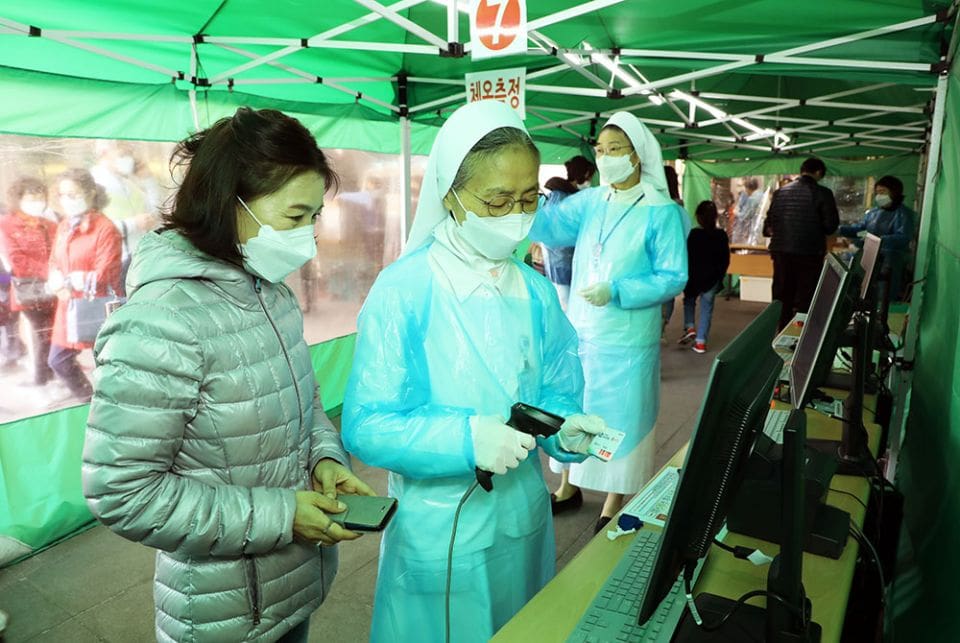
Almost one-fourth of the 230 members of the Sisters of Charity of St. Vincent de Paul of Suwon serve in St. Vincent’s Hospital near the Mother House. Managing the 900-bed, almost 3,000-employee hospital is the largest ministry of the congregation, but has become increasingly complex. (Courtesy of Sisters of Charity of St. Vincent DePaul of Suwon)
Soon after, however, waves of the pandemic erased our joy and seemed to bring the world back to the 17th century and the plague at the time of St. Vincent de Paul. Now, as in times past, Europe lost many lives and witnessed its people in a panic trying to stock daily necessities, a scenario repeated in other regions of the world as the virus spread. The “looked-up-to” societies with ensured safety, convenience, and advances lost control over daily life. The whole world seemed driven to despair. We spent the whole year hoping each time a wave of infections rose, that that would be the last. Like when a storm churns the sea, we have seen the hidden reality of our society, and our religious life in particular. Here are some of my reflections about the changes this global and historical event has brought in religious life and a call for our adaption in the coming era.
Initial response
Each congregation has its own experience of COVID-19 depending on its population, location and activities. For us, Sisters of Charity of St. Vincent de Paul of Suwon, the impact was fairly direct. Almost one-fourth of our 230 members are serving in St. Vincent’s Hospital near the Mother House, where relatively older sisters with weak immune systems stay with the congregational leadership. Sisters in the Mother House and the hospital put up with many restrictions limiting our “routine” — being unable to visit family, use public transportation or do personal shopping — lest we bring dishonor to the Catholic Church or institutions in Korea, where many Christian church communities had been a hotbed of several outbreaks.
The past experience with plague in the 17th century seemed to be repeating itself. We witnessed anxiety among our vulnerable neighbors and exhaustion of frontline workers in our hospital. News of deaths of our aging sisters in Germany and elsewhere of COVID-19 brought the harsh reality much closer. Feeling urged to do something, sisters at the Mother House and elsewhere made masks and snacks for the hospital employees. We shared our allowance — a special payment from the province and city government to each citizen because of the pandemic — with those in need of support. We organized a team to identify those most affected by the pandemic in our local communities and shared cash or daily necessities, including handwritten letters of support and solidarity with the deliveries.
Reflection on prayer
At the beginning of last year’s Lenten season, when community Mass was no longer celebrated in the Korean church, we also stopped the Mass in the Mother House to join the pain of the faithful as well as to prevent a further outbreak. While we devoted more time to Eucharistic adoration and personal prayer, we realized how much our spiritual life was built around priest-centered liturgies. It was a chance to reorient our prayer toward the Word of God and community life. Our prayer intentions were a reflection of our renewed hearts: We were caring for the world rather than our sanctification. When the surge subsided and we found out the situation would not end soon, we decided to resume daily Mass in May. As a vast number of the ordinary faithful cannot attend community Mass to observe the government policy, we are offering Masses with a mixed feeling of being in debt and a deeper appreciation. This reaffirms that it is our vocation to be consecrated for the people of God.
Reflection on ministry
Although St. Vincent’s Hospital is our very first and biggest ministry, running the hospital always leaves us with many questions. We feel so challenged to run it according to our charism when the government has control over the nation’s standardized medical system. The complex rules, competitive environment and stress of running a 900-bed hospital with almost 3,000-employees contrasts with our management of a smaller charity hospital that treats foreign laborers who have no insurance. The charity hospital seems to better fit our charism and our foremost desire to treat and comfort patients. The pandemic stirred the recurring question of whether we should continue management responsibility over the larger hospital.
Parish ministry for women religious was formed uniquely in the Korean church. After suffering hundreds of years of persecution of Catholicism and following Japanese colonization and the Korean War, our church had to deal with miseries in the lives of people. Having sisters based in parishes worked well to closely care for the faithful, so the church could grow. About 20 years ago, parish ministry was brought to a discernment process for many congregations and not considered as vital, but still, many women religious remain in parishes.
However, the pandemic deprived us of our jobs when the faithful did not gather in church, and we came to question the meaning of our presence in parishes. Other ministries were also affected: sisters who were serving as assistant chaplains in hospitals could not do so as they were no longer allowed to contact patients. Some have recently resumed their ministries in some hospitals that are allowing patient visits.
Stories are not so different in other apostolates. The more our institutions get systematic and supported by the government, the harder we have to work to meet all the requirements. Do we still need to be in a kindergarten or an elderly home? Is this the time that we always talk about whenever we reevaluate ministries that we need to hold onto? We regret we were too much focused on “work”, not our “origin.” We have to admit that our workaholic tendencies loosened the bonds in the community which will not be easily recovered.
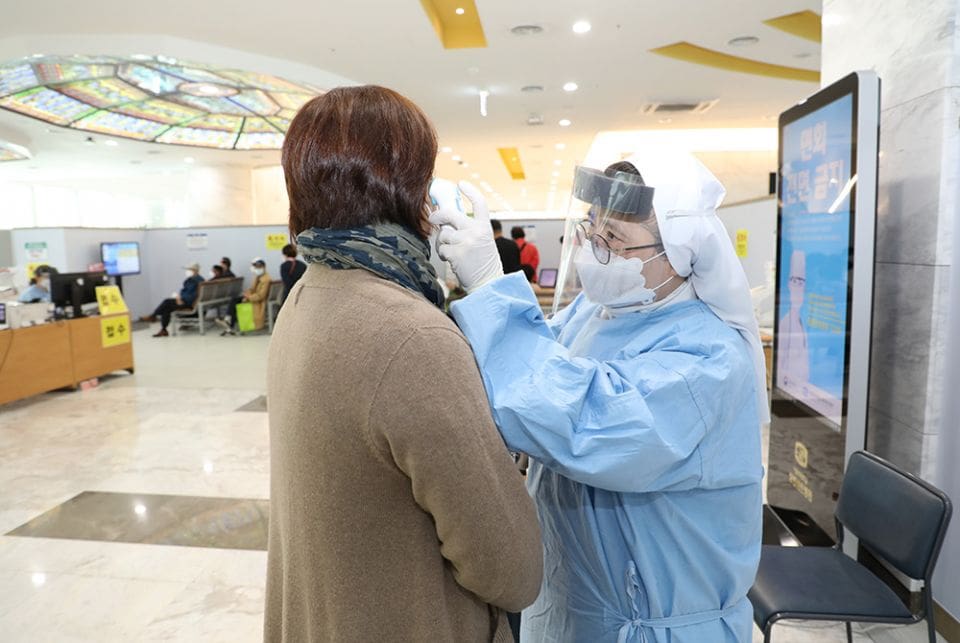
Almost one-fourth of the 230 members of the Sisters of Charity of St. Vincent de Paul of Suwon serve in St. Vincent’s Hospital near the Mother House. Managing the 1,000-employee hospital is the largest ministry of the congregation, but has become increasingly complex. (Courtesy of Sisters of Charity of St. Vincent DePaul of Suwon)
Reflection on community life
Social distancing reshaped our community life. We couldn’t meet the sisters in the hospital or celebrate Mass together. Community gatherings were canceled, family visits stopped, and we came to think about whether all those gatherings and travels were really necessary. We stayed in the convent, the starting point of religious life.
Online mass and digital communication increased social media use. Using smartphones disturbs prayer life and undermines community unity. We need to repair the way we relate to others through face-to-face communication. On the other hand, closing a door to travel opened a door online to connect with sisters abroad, not only for a superior but for all sisters. What was previously a local celebration with a few representatives became one of a whole community when going virtual. Moreover, quarantine guidelines made us bring a lunchbox when going out instead of eating at a restaurant. Even after COVID-19 is over, I think we will have to refrain from traveling by plane. Then, we need to find a way to reach our sisters in foreign countries and to maintain solidarity with the Vincentian Family worldwide.
Fulfilling the vows through ecological conversion
Being paralyzed by the pandemic, the world had to admit some uncomfortable truths: “Everyone on the planet is connected” — “When you are ill, so am I” — “If we do not stop destroying the environment right now, the existence of 7.5 billion of the global community will be threatened.” We can turn this crisis into an opportunity. As the church marked Laudato Si’ Week in this midst of crisis, our congregation also launched the Justice Peace and Integrity of Creation committee to help create a sustainable society. It is getting clear to me that the value of religious life will be found not only in our ministry, but in the attitude of life that you and I develop. We are now to more fully live out the evangelical councils: poverty that makes us satisfied with what is given, charity that nourishes us to care for our neighbors, and obedience that preserves the order of creation.
New wine in new wineskins
There arises a hope in us that the shared experience of COVID-19 will be another turn on the axis in human history by awakening our responsibility to the Earth and the entire planetary community. Given this vision, women religious can provide the first aid to our wounded society by being a bridge for the poor. The economic polarization is getting intensified by this pandemic, and more and more people will be tagged as “poor.” We women religious can be a part of the network that the less fortunate have and help them use it better. If disconnection from the world was the starting point in religious life and we were forced to return there by the virus, it is time to choose where to connect in the post-coronavirus era. Many of the “routines” that we think have been lost, perhaps might be the “extras” that we should have lost long before.
The theme for our upcoming general chapter this year is “New Wine in New Wineskins.” As we look to what this book is encouraging us to do, we hope the lessons being learned from the pandemic will inform our individual and collective discernment. Some of the changes forced by the pandemic may well become more permanent aspects of religious life.
Source: https://www.globalsistersreport.org/news/coronavirus/column/new-wine-new-wineskins-religious-life-post-coronavirus-era
Tags: coronavirus

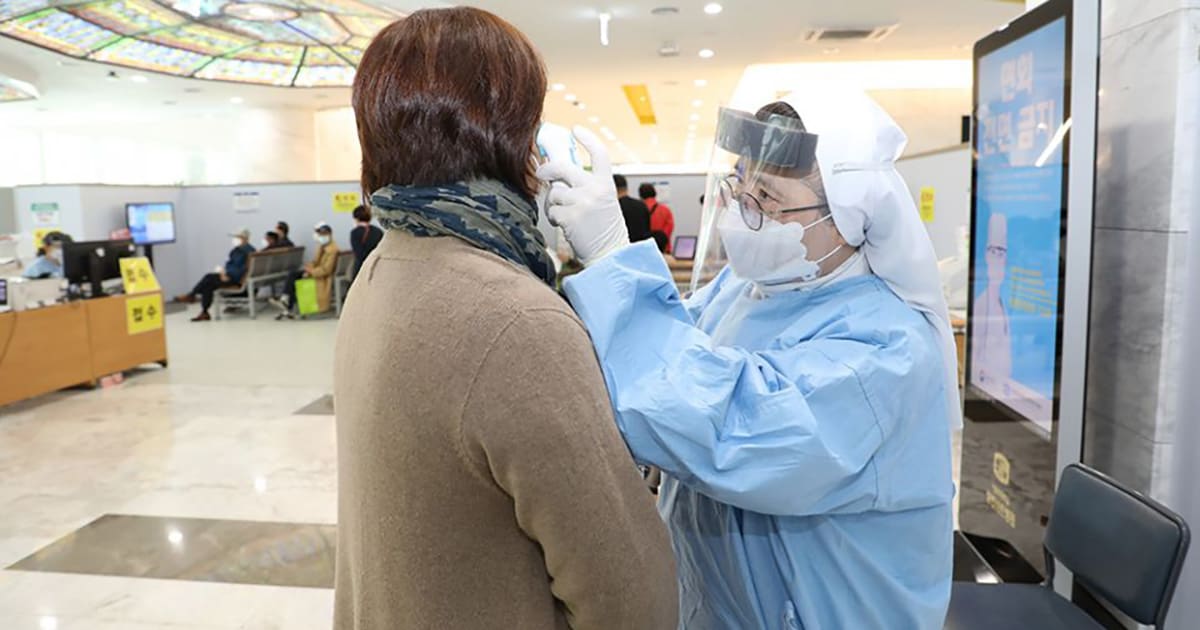

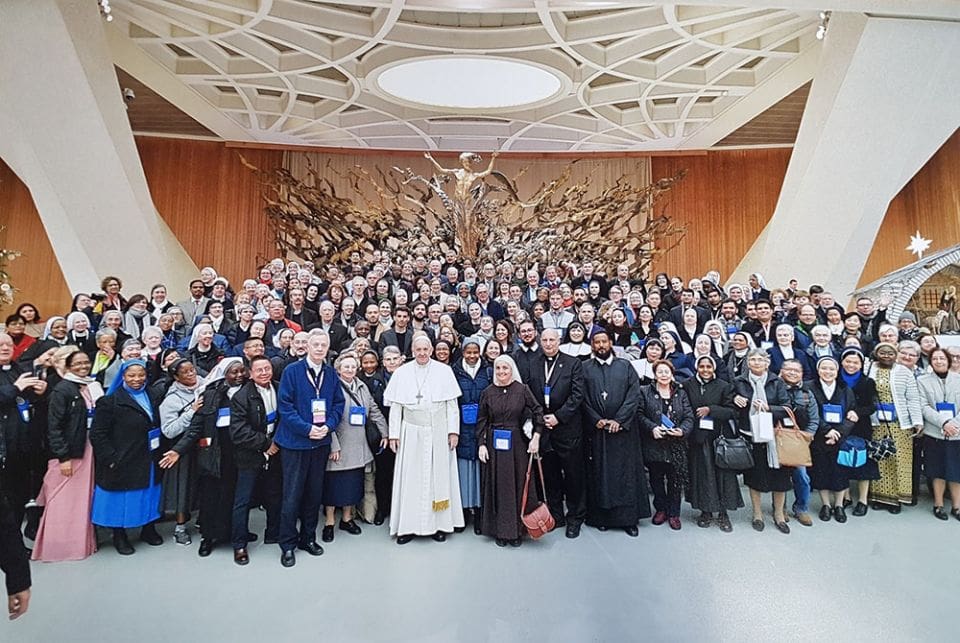
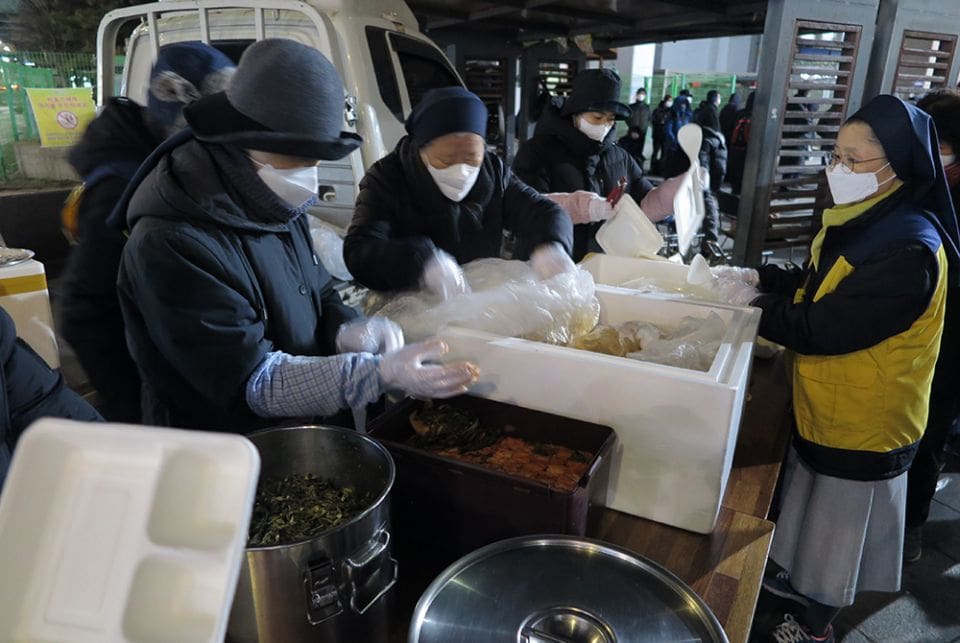





0 Comments